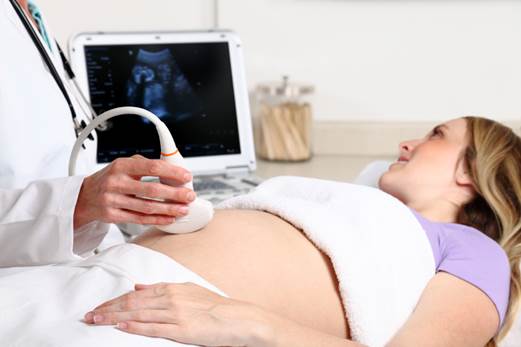You should take antenatal care (ANC) as soon
as possible after finding out some signs of pregnancy.
Pregnant women should take ANC at least 3
times during pregnancy.
Some women recognize they’re pregnant but
refuse to have early medical exams because they think that at that time,
fetuses are still small. However, according obstetricians, not having early ANC
can lead to unfortunate results like early miscarriage, stillbirth which due to
uterine abnormalities or gene.
To prevent the situation, you should have
early ANC to know whether the pregnancy develops well or not in order to have
timely intervention.
When should you have the first ANC?

When
you miss a week or when the pregnancy test stick show 2 lines, you should go
the hospital.
When you miss a week or when the pregnancy
test stick show 2 lines, you should go the hospital. There’re many people who
know they’re pregnant but don’t go to see a doctor until 2- 3 months later.
This’s not recommended. It’s necessary for you to take pregnancy test soon to
prevent ectopic pregnancy which is very dangerous unless there’s timely
detection. You’ll take ultrasound test to define the location of fetuses and
fetal heartbeat. If there’s no fetal heartbeat in the 5th-6th
week, you shouldn’t worry; it’s just because the fetuses are so small. You will
be required to come the later time when fetuses are 7th-8th
weeks old, to define fetal heartbeat.
The first visit is very important, there’re
other ones that you shouldn’t skip:
Ultrasound nuchal translucency measurement
In the 11th-13th weeks,
ultrasound tests help precisely define fetal age. Besides, this is also the
only moment that the ultrasound nuchal translucency measurement can be carried
out. The measurement can foretell some abnormal chromosomes which are dangerous
and relate to Down syndrome, heart and limb malformation, diaphragmatic hernia…
After the 14th week, the number won’t ever be precise. In most of
cases, people have 3m nuchal translucency. In the 18th week,
pregnant women will have amniocentesis to detect Down syndrome, ultrasound
morphology to know whether there’re malformations or not. According to
statistics, people who have nuchal translucencies that are 3.5-4mm thick are
21.1% having abnormal chromosomes while the ones with nuchal translucencies
that are over 6.5mm thick are 64.5%having fetal abnormal chromosome.

In
the 11th-13th weeks, ultrasound helps precisely define
fetal age.
Triple test – screening test
Triple test helps predict the risk of Down
syndrome and chromosome malformation of fetuses. The test is only valid when
being taken around the 14th-17th week of pregnancy. The
cost of one Triple test is 12$. This test is one of those making pregnant women
worry about. As it’s screening test, there’re people who have low risk but
still have Down children. Similarly, people who have the high risk may not have
Down children. Triple test doesn’t bring precise diagnosis, but prediction.
The risk is performed in probability form
for example: 1/100. That probability can make some people confused and worried
because of its uncertainty. There’re people who were very nervous when they saw
the result which is 1/300. That number means 1 out of 300 people that have the
same result with yours have Down children. And don’t forget that 1:300 not only
means that you are 1/300 or 0.3% having children that have malformation, but
also are 299/300 or 99.7% having normal babies.

That
test will help you exactly diagnose whether fetuses have Down syndrome or not.
Nowadays, over 1/250 is considered to be
the high ones and pregnant women who have that probability will be consulted to
take amniocentesis. That test will help you exactly diagnose whether fetuses
have Down syndrome or not. When having amniocentesis, you should consider the
resolutions to face with the results that you have Down babies or ones that
have malformation. In the end, the decision depends on you. There’re parent who
were advised to have amniocentesis refused to do so since they accepted the
future babies anyway. On another side, some parent after taking test
amniocentesis know that they have a Down baby but still decide to keep he or
she. In that case, the test will help them have better reparation for the
future special situation.